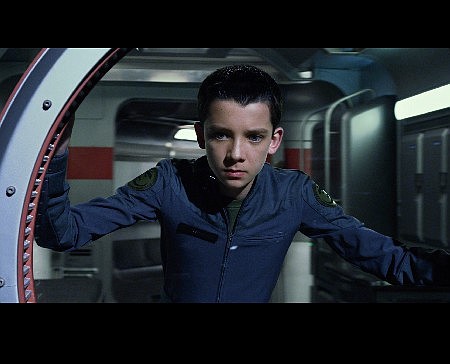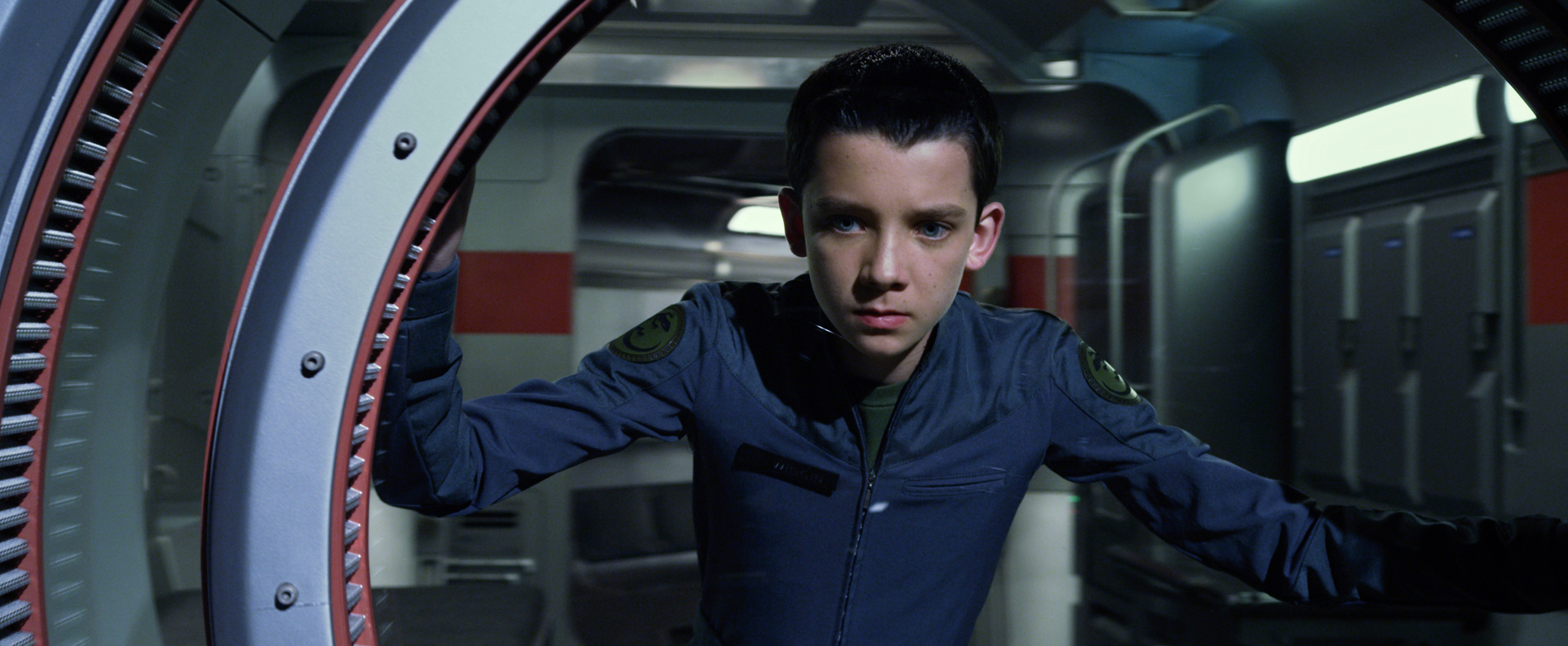Review: 'Ender's Game' makes the grade: Breathe easy, fans, film respects the book
Tuesday, October 22, 2013
As if the hormonal surges and emotional insecurities of being 13 don't dump enough stress on you, try being the person who's expected to save the planet.
That's the burden shouldered by Ender Wiggin, namesake of "Ender's Game," the film based on the science fiction book written more than 25 years ago but only now getting to the screen. The book, by Orson Scott Card, won the Hugo and Nebula awards (the Oscars of science fiction) and is beloved by a generation of seriously diehard fans, so turning it into a film was risky business.
Breathe a sigh of relief, fanboys and girls. Keeping the book's central plotline pretty much intact, the film is a rapid-fire, often exhilarating adaptation that keeps the pace moving briskly but doesn't forsake the emotional core in favor of a soul-less CGI orgy. While multiple themes float through "Ender's Game," the plot moves quickly enough that none is belabored to the point of eye-rolling heavy-handedness.
In both book and film, the Powers That Be on Earth (aka, the adults) have decided that children, with their quick-thinking, easily adaptable brains, are the only hope to prevent a cataclysmic defeat by the Formics, an insect-like race that tried to invade Earth 50 years before and was barely turned away after tens of millions died. While the Formics have not returned, the military has been training an army of youth to take the fight to the alien race.
In the eyes of Col. Hyram Graff (a gruff and effective Harrison Ford), Ender is the genius who can lead the army, but first he must be tempered in a painful crucible that includes mind games (from both computers and military superiors), tactical battle games in school, exercises in space combat and, perhaps most importantly, getting other teens to follow him without hesitation.
Because he's reserved, gangly and brilliant, Ender (Asa Butterfield) has often been bullied, but he has developed an effective method of keeping body and mind intact. A master at understanding his opponents, he always tries to give the bully a way out, but when they invariably refuse to accept it, he crushes them physically and mentally. His philosophy is: If someone attacks you, don't just win the battle, beat them so severely that you've instantly won any future battles.
But tucked under that grim exterior -- and sometimes bursting out -- is wracking guilt. Never wanting to be the aggressor, but sliding quite smoothly into annihilation mode, his self-loathing threatens to overwhelm him as he veers perilously close to what he hates most.
Ender's struggles highlight one of the central focuses of "Ender's Game": Is it possible to save your humanity when you're trained to be utterly inhumane? Should violence be the answer to violence? Sometimes yes, it seems to say.
And, along those lines, the script, by director Gavin Hood, also examines the cost of turning children into warriors before they've had a chance to mature, to understand the conflicting emotions within themselves, to learn that empathy is not a weakness, even in war. Ender realizes that understanding your enemy completely enough to eradicate him means that you must love him, too, and consequently, he wonders whether that understanding means there are other options.
Despite its kid-on-kid violence in the service of war training, "Ender's Game" is not a jingoistic, pro-military diatribe. Hood has inserted enough nuance that the military, mostly through the character of Graff, comes off as single-minded to the point of obsession and hardly sympathetic. Ford, though, manages to insert just enough humanity into his character to avoid being completely hated.
While some peripheral characters are sketchily drawn, Ender comes off in full 3-D, a result of Butterfield's performance, which provides a strong spine to the film. Through his large, blue eyes, Butterfield (last seen in Martin Scorsese's "Hugo") skillfully conveys both his inner turmoil, his intelligence and his steely determination. In the climactic battle scene, his eyes are cold, calculating and confident, seeing everything, absorbing everything. He has become the weapon that his superiors hoped he would.
Yet he has become something more.
Much has been written in recent months about the statements of Orson Scott Card, a conservative Mormon who has vociferously come out against laws permitting gay marriage. Because of his rabble-rousing statements (which I personally reject), there have been calls for boycotting "Ender's Game." Protesting by withholding your dollars is a time-honored tradition so, if you feel the need, go ahead.
But "Ender's Game" is not about gay marriage; it's a standalone piece of work to be judged on its own.
And, on its own, it stands quite tall.
Contact staff writer Shawn Ryan at 757-6327 or sryan@times freepress.com.

